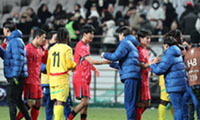▶ MAUREEN DOWD
Chris Christie has given us proof of that, as though we needed it.
Still, anyone who clings to high school the way the 51-year-old governor of New Jersey does makes me nervous.
In his hilariously lame attempt to demonize his old schoolmate and handpicked point man at the Port Authority, David Wildstein, by dredging up stuff Wildstein did as a teenager 35 years ago at Livingston High, Christie has confirmed the biographical, metaphysical and psychological primacy of high school.
On Saturday, Politico published some leaked talking points from Christie’s office with these nyah-nyah complaints about Wildstein: “As a 16-year-old kid, he sued over a local school board election.” And, “He was publicly accused by his high school social studies teacher of deceptive behavior.”
As Shawn Boburg of The Record of Bergen County has reported, Wildstein unsuccessfully sued at 16 to get on the ballot for the county Republican committee and then ran for the local school board at 17, even though he was below the legal age requirement. His social studies teacher charged Wildstein with tricking him into signing an endorsement letter for that race.
Wait, this is supposed to be good for Christie? That he gave a $150,000-a-year job to a guy he knew was a wayward, duplicitous teen?
The Washington Post reported this week that Christie wasn’t always so scornful of silly adolescent litigation. When Christie was a senior, he and his family considered suing to stop a transfer student from co-opting his role as catcher — even if it meant that the team, which went on to win the state championship, would have to forfeit the spring season. But he thought better of it.
The Record compared the yearbook profiles of Christie with the not-so-wild Wildstein: “Christie, a year younger, was a perennial class president and baseball player who wrote in his senior yearbook in 1980 about high school sweethearts and going to concerts. There are no remembrances, school clubs or sports teams next to Wildstein’s 1979 senior picture. The space is blank.”
It’s risible but sort of alarming that, decades later, Christie is boasting that he was more of a big shot than Wildstein in high school, putting down the guy he created a job for, and going out of his way to say they were not even friends back when they were both connected to the Livingston Lancers — Christie as an ebullient, trim catcher; Wildstein as a quiet, bespectacled statistician.
“Well, let me just clear something up, O.K., about my childhood friend David Wildstein,” Christie said at his marathon press conference in January, a month after Wildstein had fallen on his sword for the governor. “It is true that I met David in 1977 in high school. He’s a year older than me. David and I were not friends in high school. We were not even acquaintances in high school.”
Bristling with narcissism and punitive aggression, he drove his point home: “We didn’t travel in the same circles in high school. You know, I was the class president and athlete. I don’t know what David was doing during that period of time.”
This display makes you think that Christie must have liked lording it over peons even back then, an uncomfortable echo of his office contemptuously impressing its will on the mayor of Fort Lee.
Watching Christie throw Wildstein off the sled and then publicly belittle him, it’s easy to imagine the deep gratification, deferred by decades, that Wildstein must have experienced turning on Christie.
High school looks like the beginning of adulthood and feels like it, but it isn’t adulthood. It’s some kind of dress rehearsal. It’s the first experience of a grown-up emotional and physical life, where you feel the rush of your powers and your vulnerability. Every reversal is gigantic. It’s a perfect storm of potency and ignorance, power and inexperience.
High school is the place where people get wounded — somebody else does better, an endless source of injuries, slights and offenses. Everyone comes out of high school needing vindication or revenge or compensation. It’s all about somebody else getting the pretty girl or the cute guy or the higher grade or the position on the sports team. Or the opposite: the Biffs, the quarterbacks who look back and realize they can never be that again.
The two kinds of people who never let go are the injured and the injurers, people who got slammed and the prom kings and queen bees who swanned at the top only in their teens. In a way, you could define adulthood as a passage into a time when you realize high school no longer matters.
Christie’s senior yearbook quote was “Great Hopes make Great Men.”
He’s now learned another lesson: Great Heaps of vengeful traffic cones break the Hopes of Men who would be Great.
스마터리빙
more [ 건강]
[ 건강]이제 혈관 건강도 챙기자!
[현대해운]우리 눈에 보이지 않기 때문에 혈관 건강을 챙기는 것은 결코 쉽지 않은데요. 여러분은 혈관 건강을 유지하기 위해 어떤 노력을 하시나요?
 [ 건강]
[ 건강]내 몸이 건강해지는 과일궁합
 [ 라이프]
[ 라이프]벌레야 물럿거라! 천연 해충제 만들기
 [ 건강]
[ 건강]혈압 낮추는데 좋은 식품
[현대해운]혈관 건강은 주로 노화가 진행되면서 지켜야 할 문제라고 인식되어 왔습니다. 최근 생활 패턴과 식생활의 변화로 혈관의 노화 진행이 빨라지고
사람·사람들
more
“이민 선구자들에 바치는 헌사”
이진영 감독은 이화여대 언론정보학/영상학과를 졸업하고 하와이로 이민왔다. 하와이 한국일보 기자, KBFD-TV 앵커 등으로 10년간 일하고 2…

김영화 수필가 ‘한국디지털문학상’ 대상
본보 화요칼럼 필진으로 활동하고 있는 수필가 김영화씨가 한국디지털문인협회(회장 김종회)가 주최하는 제4회 한국디지털문학상 공모에서 로 대상을 …
화랑청소년재단 차세대 정체성 리더십 포럼 성료
화랑청소년재단(회장 샘 신)과 화랑인터내셔널(총재 박윤숙)이 주최·주관한 제21회 차세대 정체성 리더십 포럼이 지난 15일 LA 시청에서 20…
제1회 ‘도전! 한국역사퀴즈대회’ 성료
미주한국학교총연합회(회장 이영숙)가 주최한 ‘제1회 도전! 한국역사퀴즈대회’가 지난 15일 부에나파크 하나교회에서 성황리에 열렸다. 선착순 모…
박정희 기념사업회 탄신 108주년 기념행사
미주박정희대통령기념사업회(회장 이재권)는 지난 14일 아로마 센터에서 박 대통령 탄신 108주년 기념 만찬을 개최하고 기념 촬영을 진행했다. …
많이 본 기사
- 380만 건 적체에 멈춘 이민법원… 한인들 ‘신분 위기’
- 탁재훈, 아들 얼굴 공개..美 명문대 재학·남다른 피지컬 자랑
- 267명 탄 여객선 좌초… 9시간만에 전원 구조
- 교황 “극도로 멸시적인 대우” 트럼프 이민정책 거듭 비판
- ‘처가 손절’ 이승기, 부모에 ‘억’ 소리 나는 ‘효도’.. “26억대 타운하우스 증여”
- 김우빈♥신민아, 10년 열애 끝에 결혼
- 공화당 선거구 조정안, 텍사스 연방법원서 제동
- 토랜스 제일장로교회 EM 목사, 부당해고 소송
- ‘엡스타인 파일 공개 법안’ 가결
- 악뮤 수현, 다이어트로 얼마나 뺀 거야..반쪽된 근황
- 가주 주지사 경선구도 ‘안갯속’
- 구혜선, 벤처기업 대표 변신..특허 취득한 헤어롤 론칭 “완판 기대”
- 내년 선거 민주당 ‘압도’… 공화당 ‘경고등’
- [전문가 칼럼] 나이를 잊게 하는 뇌 건강법
- 고령층 노린 보이스피싱 자금세탁
- 50년 상환 모기지?… 전문가들 “득보다 실이 크다”
- [수잔 최 변호사의 LIFE &] 서울 가을 자락에서 만난 쉼터
- “임금 미지급 시 최대 3배 벌금… 주 고용법 강화”
- [지평선] 타이레놀과 아세트아미노펜
- 친구들과 걷는데 나만 뒤처진다면… “폐 기능 검사 받아보세요”
- 의회가 공개 결정 ‘엡스타인 파일’… 정·재계 ‘뇌관’되나
- 로보택시 경쟁 가열… 아마존 죽스 가세
- ‘일본 7승-한국 6승-미국 3승’
- [쿠쿠] 연중 한번 ‘블랙프라이데이’ 메가세일
- “정기적인 음악 감상… 치매 위험 감소와 관련”
- [기고] 디지털 주권의 토대, 소버린 클라우드
- [경제 트렌드] 부유층이 원하는 건 ‘프라이빗 럭서리’
- “내연기관부터 자율주행… LA 오토쇼 경험하세요”
- [백상논단] 젠지혁명와 유스 액티비즘
- 뒤늦게 시작된 ‘킹’ 제임스의 23번째 시즌… 더블더블 활약
- 트럼프, 채권 집중 매입 8월 이후 최대 4억달러
- 메디케이드 받으면 영주권 신청 거부된… 1
- 올해 스키 시즌 시작 맘모스는 오늘 개장
- 홍명보호 올해 일정 끝… 중원조합·수비불안 ‘해결 과제’
- 월세 대신 자산 만드는 방법
- 이자율 옮길 수 있는 융자와 50년 대출
- ‘이경실 子’ 손보승, 군 복무기간 중 ‘달걀 판매’ 영리활동..징계 대상자 되나?
- 25일 추수감사절 노인잔치 파바월드·시니어센터 주최
- [윌셔에서] 틈과 행간 사이를 서성이며
- 구글 ‘제미나이3’ 출시 검색창에도 전진 배치
- 한인 커뮤니티의 중심지 ‘부에나팍’
- 빈살만 극진환대 트럼프…영부인 만찬 … 1
- 재융자 기회 돌아왔나?… 이자율 인하에 재융자 관심↑
- 북VA 불법 마사지업소 260곳 넘는다
- ‘패스트트랙 충돌’ 1심유죄 벌금형…나경원 “정치항거 명분인정”
- LA 한국문화원, 스미소니언 ‘이건희 컬렉션’ 설명회 개최
- 루카스 미술관 내년 9월 오픈
- 박정희 기념사업회 탄신 108주년 기념행사
- VA 주지사 인수인계 ‘삐걱’…UVA 총장 선임 ‘격돌’
- ‘패스트트랙 충돌’ 나경원·송언석·황교안 등 1심 유죄…벌금형
1/5지식톡

-
 테슬라 자동차 시트커버 장착
0
테슬라 자동차 시트커버 장착
0테슬라 시트커버, 사놓고 아직 못 씌우셨죠?장착이 생각보다 쉽지 않습니다.20년 경력 전문가에게 맡기세요 — 깔끔하고 딱 맞게 장착해드립니다!장착비용:앞좌석: $40뒷좌석: $60앞·뒷좌석 …
-
 식당용 부탄가스
0
식당용 부탄가스
0식당용 부탄가스 홀세일 합니다 로스앤젤레스 다운타운 픽업 가능 안녕 하세요?강아지 & 고양이 모든 애완동물 / 반려동물 식품 & 모든 애완동물/반려동물 관련 제품들 전문적으로 홀세일/취급하는 회사 입니다 100% …
-
 ACSL 국제 컴퓨터 과학 대회, …
0
ACSL 국제 컴퓨터 과학 대회, …
0웹사이트 : www.eduspot.co.kr 카카오톡 상담하기 : https://pf.kakao.com/_BEQWxb블로그 : https://blog.naver.com/eduspotmain안녕하세요, 에듀스팟입니다…
-
 바디프렌드 안마의자 창고 리퍼브 세…
0
바디프렌드 안마의자 창고 리퍼브 세…
0거의 새제품급 리퍼브 안마의자 대방출 한다고 합니다!8월 23일(토)…24일(일) 단 이틀!특가 판매가Famille: $500 ~ $1,000Falcon: $1,500 ~ $2,500픽업 & 배송직접 픽업 가능LA…
-
 바디프렌드 안마의자 창고 리퍼브 세…
0
바디프렌드 안마의자 창고 리퍼브 세…
0거의 새제품급 리퍼브 안마의자 대방출 한다고 합니다!8월 23일(토)…24일(일) 단 이틀!특가 판매가Famille: $500 ~ $1,000Falcon: $1,500 ~ $2,500픽업 & 배송직접 픽업 가능LA…
케이타운 1번가
오피니언
 수잔 최 한미가정상담소 이사장 가정법 전문 변호사
수잔 최 한미가정상담소 이사장 가정법 전문 변호사 [수잔 최 변호사의 LIFE &] 서울 가을 자락에서 만난 쉼터
 강민수 을지대 첨단학부 교수 한국인공지능학회장
강민수 을지대 첨단학부 교수 한국인공지능학회장 [기고] 디지털 주권의 토대, 소버린 클라우드
 이숙종 성균관대 국정전문대학원 특임교수
이숙종 성균관대 국정전문대학원 특임교수 [백상논단] 젠지혁명와 유스 액티비즘
 박연실 수필가
박연실 수필가 [윌셔에서] 틈과 행간 사이를 서성이며
 이동현 / 한국일보 논설위원
이동현 / 한국일보 논설위원[지평선] 타이레놀과 아세트아미노펜

[왈가 왈부] ‘한미협상 국회 비준’ 갑론을박… 외교는 ‘국익’이 먼저죠
 정숙희 논설위원
정숙희 논설위원사라진 백악관의 이스트 윙
 파리드 자카리아 워싱턴포스트 칼럼니스트 / CNN ‘GPS’ 호스트
파리드 자카리아 워싱턴포스트 칼럼니스트 / CNN ‘GPS’ 호스트 계속되는 민주당의 헛손질
 김동찬 시민참여센터 대표
김동찬 시민참여센터 대표 [미국은 지금] 미국 정치의 파산과 그 댓가
1/3지사별 뉴스

22기 뉴욕평통 출범식⋯“힘찬 출발”
22기 민주평화통일자문회의 뉴욕협의회(회장 이시화)는 17일 퀸즈 플러싱 소재 코리아빌리지 디모스 연회장에서 자문위원 173명을 비롯한 한인사…
메디케이드 받으면 영주권 신청 거부된다

VA 주지사 인수인계 ‘삐걱’…UVA 총장 선임 ‘격돌’
버지니아 글렌 영킨(Glenn Youngkin, 공화, 사진 왼쪽) 주지사와 내년 1월 취임하는 아비가일 스팬버거(Abigail Spanber…
북VA 불법 마사지업소 260곳 넘는다

오프라인 한국어 과정 성공적 마무리 단계
샌프란시스코 한국 교육원(허혜정 원장)이 2025년 가을 학기에 처음 개설한 오프라인 한국어 과정 ‘한국어 1’이 오는 22일 성공적인 마무리…
마라나타 비전교회, 장로/안수집사 임직및 장로 은퇴예배

오늘 하루 이 창 열지 않음 닫기 


















































.png)


댓글 안에 당신의 성숙함도 담아 주세요.
'오늘의 한마디'는 기사에 대하여 자신의 생각을 말하고 남의 생각을 들으며 서로 다양한 의견을 나누는 공간입니다. 그러나 간혹 불건전한 내용을 올리시는 분들이 계셔서 건전한 인터넷문화 정착을 위해 아래와 같은 운영원칙을 적용합니다.
자체 모니터링을 통해 아래에 해당하는 내용이 포함된 댓글이 발견되면 예고없이 삭제 조치를 하겠습니다.
불건전한 댓글을 올리거나, 이름에 비속어 및 상대방의 불쾌감을 주는 단어를 사용, 유명인 또는 특정 일반인을 사칭하는 경우 이용에 대한 차단 제재를 받을 수 있습니다. 차단될 경우, 일주일간 댓글을 달수 없게 됩니다.
명예훼손, 개인정보 유출, 욕설 등 법률에 위반되는 댓글은 관계 법령에 의거 민형사상 처벌을 받을 수 있으니 이용에 주의를 부탁드립니다.
Close
x